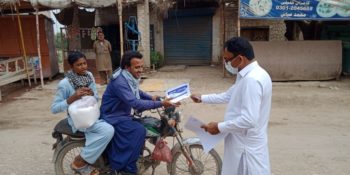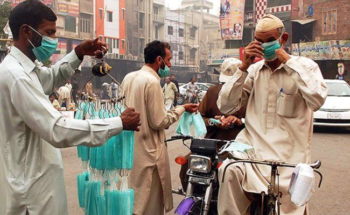In the current COVID-19 pandemic state, it was a good decision to close down offices, shops and malls according to Bharat Kumar, Community Mobilizer at Community World Service Asia in Umerkot. “I will secured and protected when working from home, however, it is not easy. The strict lockdown in the city have deserted the streets and market areas. No one is to be seen in the streets. It is not a comforting sight.
The district administration and security departments are putting all efforts to ensure social distance through the lockdown and barriers all over the roads. It is still disappointing to see how some people are still not taking this situation seriously. They are going out without wearing masks or gloves. The police however is playing an important role in sensitizing the people whenever they see them not wearing the protective gear.
The social media has been filled with many awareness messages and precautionary measures the families have to take to prevent the spread of coronavirus. It is difficult to see children not playing or families not meeting their relatives or friends. We hope that this situation settles down soon and people can move around freely like they used to.
Partan Rai, residing in Umerkot, shared that fear of disease is not as frightening as the fear of running out of food. People working in the labor force, earning daily wages for their families have been most vulnerable in this situation. They are unable to find work which does not allow them to earn money. It is difficult to make ends meet for them especially.
We are trying to stay at home as it is the safest option. As a humanitarian worker, I feel vulnerable as I am unable to help those in need at these gravest times. I have been nominated to be part of the Corona Relief Committee to serve my community. I feel proud and am prepared to perform any task appointed by my organization to help those who have been affected by this difficult situation.”



